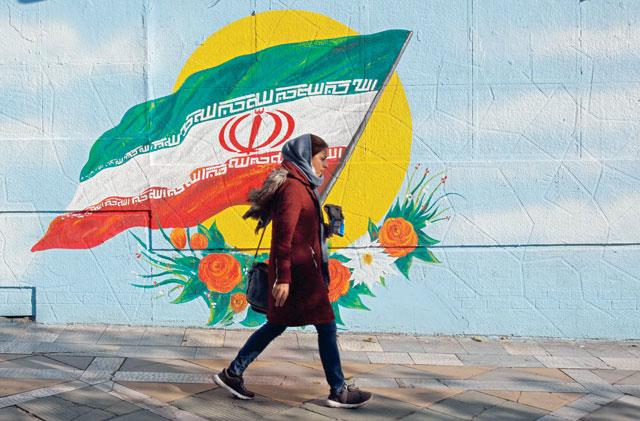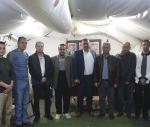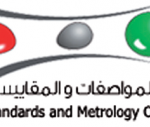You are here
Iran's guards praise 'timely' action against protests
By AFP - Nov 21,2019 - Last updated at Nov 21,2019
TEHRAN — Iran's Revolutionary Guards Thursday praised the armed forces for taking "timely" action against "rioters" and suggested calm had been restored after days of unrest sparked by a hike in petrol prices.
Authorities vowed to arrest leaders of the protests that erupted Friday, in which police stations were attacked, petrol pumps torched and shops looted, and which Iran has blamed on a plot by foreign enemies.
While the Internet remained mostly blocked for a fifth day, state TV showed footage of what it said were pro-government rallies to celebrate the defeat of the "conspiracy".
Crowds in cities including Qom and Isfahan chanted "death to seditionists, death to America" and "the blood in our veins is a gift to our leader".
In the days of unrest, "incidents, big and small, caused by the rise in petrol price took place in [a little] less than 100 cities across Iran," said a statement on the guards' official website Sepahnews.com.
It said the "incidents were ended in less than 24 hours and in some cities in 72 hours" as a result of the "armed forces' insight and timely action".
Protest leaders were arrested in the province of Tehran and Alborz as well as in the southern city of Shiraz, it added.
The "arrest of the rioters' leaders has contributed significantly to calming the situation," it said.
Top Iranian security official, Rear Admiral Ali Shamkhani, vowed that “every single one of the rioters, wherever in Iran they may be, will be identified and punished”.
“Enemies wanted to exploit the Iranian nation’s protest regarding livelihood issues but failed due to the people’s vigilance,” Mehr news agency quoted him as saying.
A “retired employee of Iran’s embassy in Denmark” was arrested for “blocking” a main Tehran highway, judiciary spokesman, Gholamhossein Esmaili, told state TV.
The state broadcaster aired the confessions of a woman named Fatemeh Davand who said she was “one of the leaders’ of riots” in northwestern Iran and had links to “anti-revolutionary groups in a neighbouring country”.
Iran’s neighbour Iraq has been hit by weeks of anti-government protests, with demonstrators voicing resentment against what they describe as Tehran’s meddling in their country.
The full extent of the bloodshed in Iran remained difficult to ascertain given the near-total Internet restriction.
Officials have confirmed five deaths — four security personnel and a civilian.
The UN’s human rights office has said it was alarmed by reports that live ammunition had caused a “significant number of deaths”.
Amnesty International said more than 100 demonstrators were believed to have been killed and that the real toll could be as high as 200.
Iran’s mission to the UN disputed the Amnesty toll, tweeting that figures “not confirmed by the government are speculative” and in many cases a “disinformation campaign waged against Iran”.
The European Union urged Iran to show “maximum restraint” in handling protests.
Tehran replied by accusing the EU of interference and asking it “to explain why it doesn’t keep its promises” to help the Islamic republic bypass US sanctions that have plunged Iran’s economy into recession.
Iran’s Ambassador to Britain Hamid Baeidinejad described those who attacked public property as “organised armed rioters”, adding in a tweet that they had planned to “sabotage the national phone system”.
Cash handouts
Iran as of Monday started paying out cash handouts as part of its “livelihood support plan” to 40 million people, with 20 million more set to be paid on Saturday, local media said.
Monthly handouts — ranging from 550,000 rials ($4.64) for individuals to slightly more than 2 million rials ($17) for families of five and more — are to be financed via revenues generated from cutting petrol subsidies.
On Tehran streets people complained of economic hardships.
“Our income has not increased at all but costs have tripled or quadrupled,” Ehsan, a lawyer, told AFP. “If it continues as is it will be really hard to manage livings costs.”
Iran has experienced a sharp economic downturn this year, fuelled in part by US sanctions, with a plummeting currency sending inflation skyrocketing and hiking the prices of imports.
The internet blackout remained largely in effect on Thursday, with Iranians abroad tweeting hashtags like #Internet4Iran and calling for an end to the outage.
The national security council made the decision to pull the plug on Internet access, said semi-official news agency ISNA.
The telecommunications minister said the outage caused a “90 per cent drop in transactions” in some businesses, while some firms dealing with foreign partners had to temporarily shut down.
Reformist MP Ali Motahari argued that “continuing the internet blackout is not necessary, since calm has returned to the country”, adding that the parliament would “react” if the outage continues.
ISNA said Internet access and connectivity via ADSL had been partially restored in some provinces and for some universities in Tehran.
Netblocks, a website that monitors net shudowns, confirmed in a tweet that Iran’s “connectivity is being restored, although only partially”.
Related Articles
TEHRAN — President Hassan Rouhani warned Sunday that riot-hit Iran could not allow "insecurity" after two days of unrest killed two people a
TEHRAN — Iran vowed Sunday to severely punish "mercenaries" arrested over nationwide street unrest sparked by a fuel price hike, as much of
Geneva — The United Nations voiced alarm Tuesday at reports dozens may have been killed in Iranian demonstrations, as the Islamic republic s

















